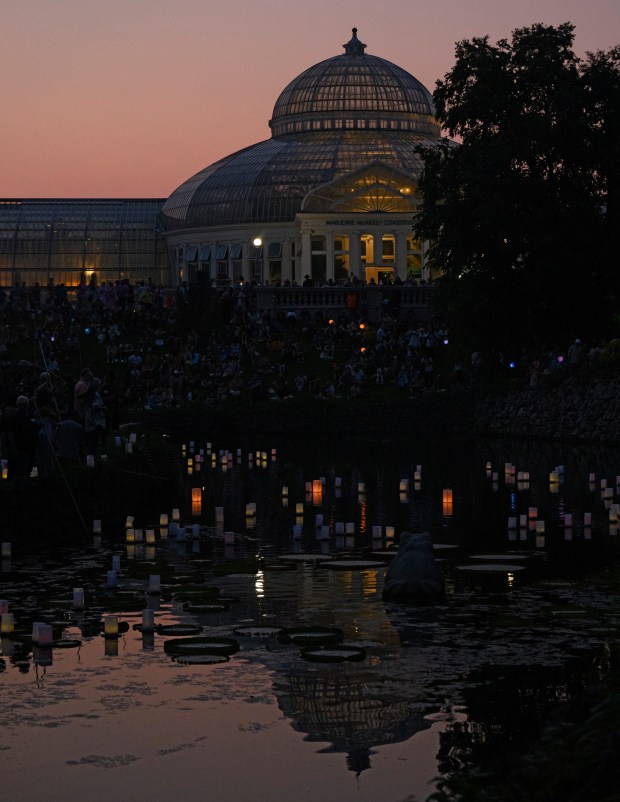Liberty Classical Academy officials say they plan to pursue “all legal remedies” against May Township in order to begin construction of the school’s planned expansion as soon as possible.
The May Town Board voted earlier this month to deny Liberty Classical Academy’s request for a conditional-use permit for a sewage treatment system and stormwater management facilities that are proposed to be located on school property in the township.
The private Christian academy, which serves students pre-K through 12th grade, moved part of its lower-school programming two years ago to the former Withrow Elementary School building in neighboring Hugo. School officials also bought the neighboring 88-acre Zahler farm, which is located in Hugo and May Township.
Liberty officials plan to build an approximately 33,500-square-foot building addition to the existing school and associated parking on the Withrow property. The Hugo City Council in June approved the expansion plans, which will effectively double the size of the school building.
An architectural rendering of Liberty Classical Academy’s plans for an approximately 33,500-square-foot addition to its existing school in Hugo. The school, which serves students from pre-kindergarten through second grade, is located on the former Withrow Elementary School property. (Courtesy of Liberty Classical Academy)
But May Township officials denied the academy’s CUP request “on the basis that it is inconsistent with the terms of a recently passed interim ordinance establishing a moratorium around non-residential, commercial and institutional type uses in the rural residential district,” said Town Board Chairman John Pazlar.
The vote was 2-0. Supervisor Don Rolf abstained; he is an employee of Pope Design Group, the architecture firm assisting the school with the building plans.
The board also directed staff to map out a timeline for the code-revision process to be completed during the moratorium and consider whether the one-year moratorium “could be compressed into a shorter time frame, for example 6 to 8 months,” Pazlar said.
‘Project is not over’
School leaders are disappointed they cannot begin the project this summer as planned, said Rebekah Hagstrom, the academy’s headmaster and founder.
School officials first presented plans for expansion to the May Town Board in May 2023, she said. Six months later, they submitted CUP applications to the Hugo City Council and May Town Board, she said.
“After study and debate, the City of Hugo approved a conditional-use permit for the project in June,” Hagstrom said. “Unfortunately, after five meetings and hours of public discussion, the Town Board denied the school’s conditional use permit, using a moratorium adopted two weeks earlier as its sole justification.”
Related Articles
Michael McGuire, ‘the most influential architect in the St. Croix Valley,’ dies at 95
Obituary: Karen Hubbard, longtime St. Croix River Valley matriarch, dies
Washington County: 2,600 votes not uploaded to the Secretary of State’s results website
Police were justified in shooting man during Woodbury Target standoff, prosecutor finds
Amazon to build second warehouse in Woodbury
“While this was not the desired outcome, the project is not over,” she said. “Liberty purchased the Withrow school building and the land around it several years ago to provide for consolidation and expansion of its Christian school. The school community and donors have generously supported the project, providing resources for design, engineering and traffic studies to satisfy the requirements of the City of Hugo, Town of May, Washington County, Brown’s Creek Watershed District and the Minnesota Pollution Control Agency.”
Some of the neighbors who live in the area told the Pioneer Press in July that they were worried about the school’s plans for future expansion, citing concerns about an increase in traffic and its proposed subsurface sewage treatment system.
Related Articles
Michael McGuire, ‘the most influential architect in the St. Croix Valley,’ dies at 95
Obituary: Karen Hubbard, longtime St. Croix River Valley matriarch, dies
Washington County: 2,600 votes not uploaded to the Secretary of State’s results website
Police were justified in shooting man during Woodbury Target standoff, prosecutor finds
Amazon to build second warehouse in Woodbury




